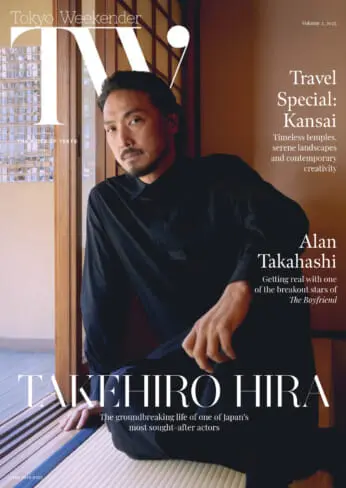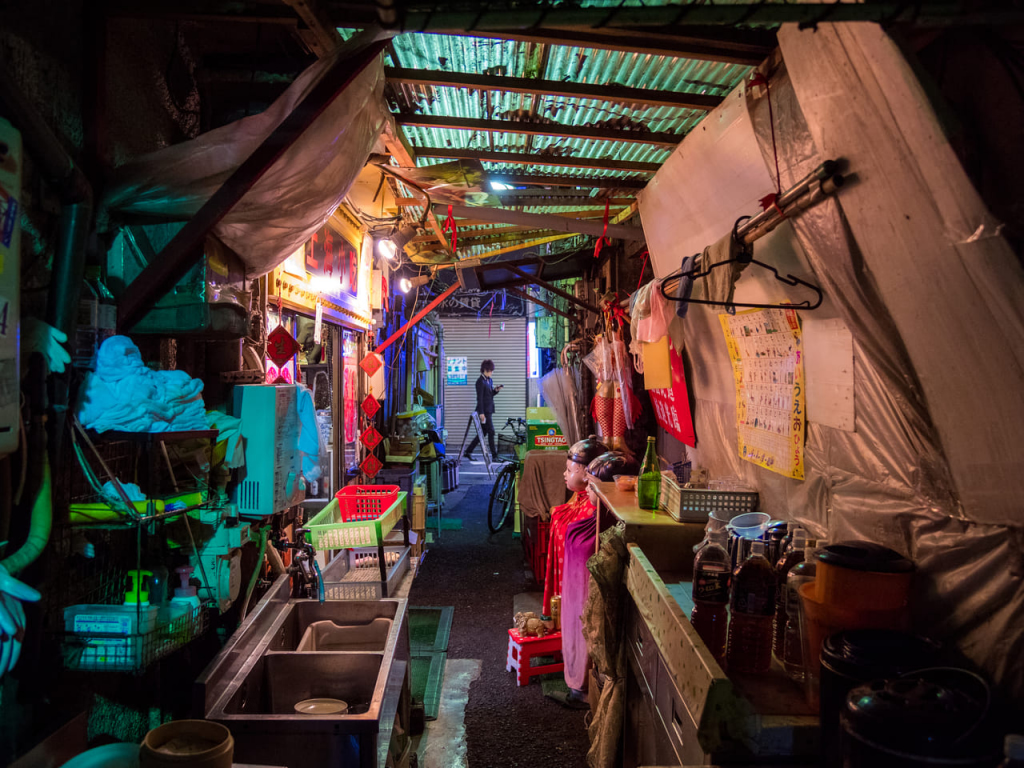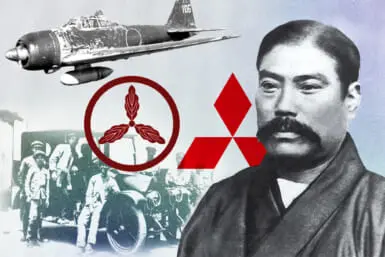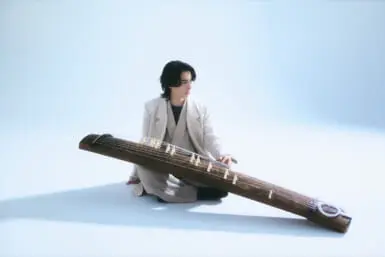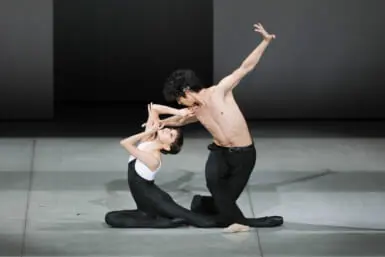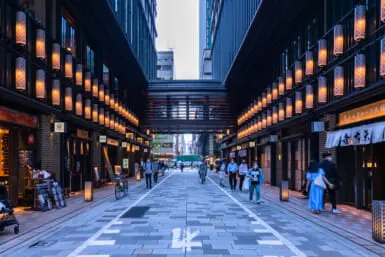Inspired by the cinematic vistas that Tokyo has to offer, photographer Lukasz Palka has spent nearly a decade capturing the city’s bright spots and hidden corners.
Photographer and Eyexplore co-founder Lukasz Palka came to Tokyo as a Sophia University exchange student. He was born in Poland, but his parents immigrated to Chicago when he was five. After graduating college, to postpone “getting a real job,” he figured he’d teach English in Japan. It didn’t seem far-fetched since some of his friends were already doing it. Nine years ago, his plan was to stay here for a year. While teaching during the day and photographing Tokyo at night, he fell in love with the city. Taking pictures was always a casual hobby. It was something that he picked up from his father, but the longer he stayed here, the more serious he got about his craft. “What I like most is Tokyo itself,” he says.
Famous for its otherworldly culture, the city’s nightscape is like an incarnation of the film Tron. The limelights of Tokyo’s popular spots beam an omnipresent tone, coloring the reflecting streets. It’s the dark fringes of those areas that Lukasz drifts through, unearthing their beauty as though mining treasure. “Tokyo does have its touristy spots, but if you go 15 minutes in any direction, away from those hot spots, suddenly you’re on your own. You might find something to photograph that no one’s ever photographed before. Even though it’s a city of 13 million people … there are these unknown places,” he says. Focusing on landscape and street photography, “Tokyo is extremely diverse when you go to different areas … it’s so big and endless … As a photographer, there are so many stories to tell, so many things to shoot.”
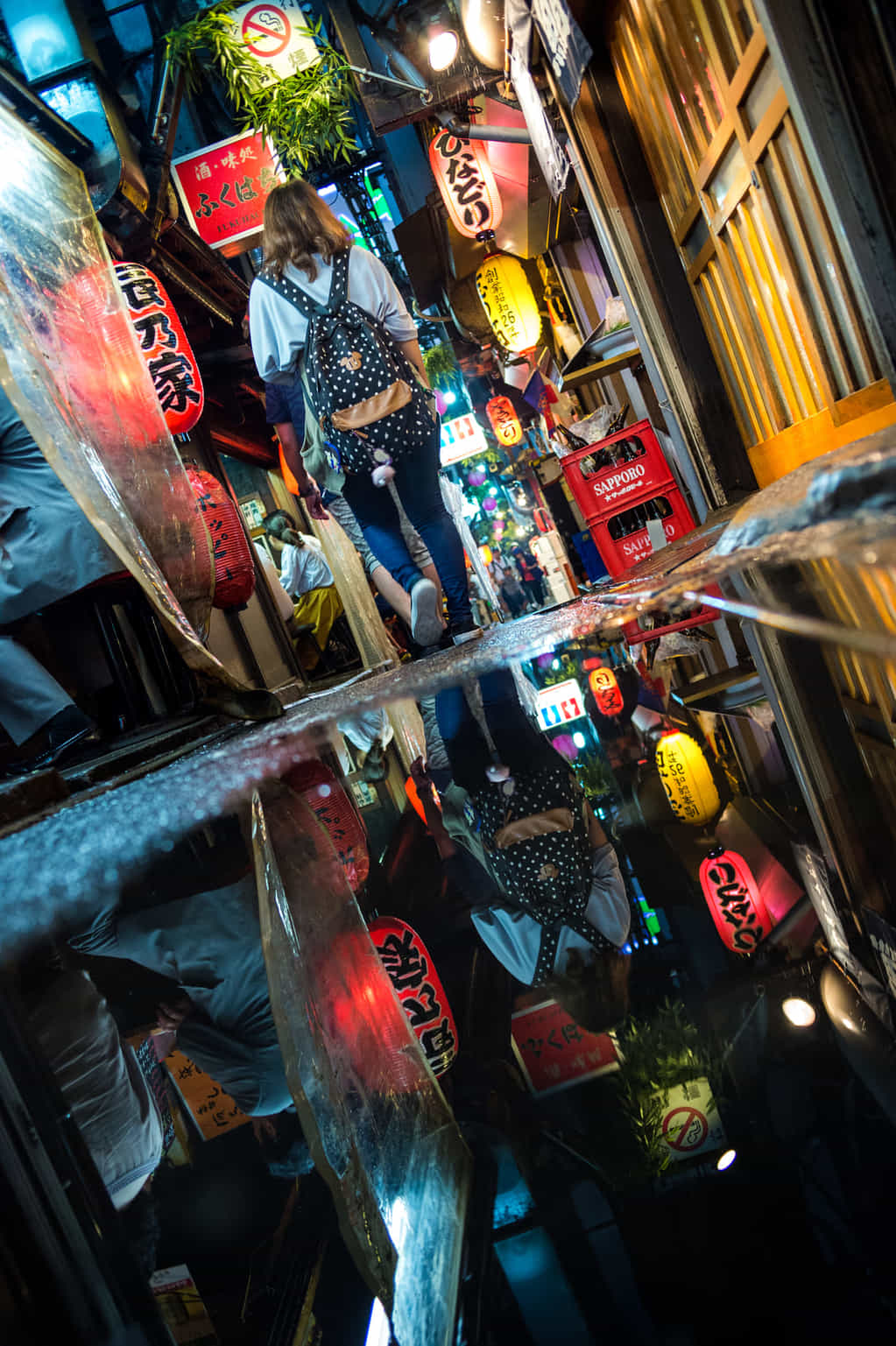

His Noctopolis series is a collection of night images that capture a city unwinding from its daily grind. In one photo, there’s a narrow enclave exposing the back kitchen of a Chinese restaurant (pictured top). The scene is a cavernous patchwork of hangers, a sink, two white statues of smiling children, and tarp hanging from the ceiling corners. Colors and detail compose chaos. Everything looks like it could be covered in grease with peach hairs of dust and grit, giving it texture. Lukasz says that he was thinking of the street scenes from Blade Runner when he shot it. The film’s apparent influence on Lukasz’s work gives perspective to his other series, L’appel du vide, French for “the call of the void.”
It’s a sequence of rooftop photos, and named after a phenomenon that urges the mind to naturally think about self-sabotage or suicide. When Lukasz wandered up to rooftops, he’d point his camera down toward the city and feel the call. “At first I was just exploring the alleys,” he says, which eventually led him to look up. From above, the streets are gridded cracks of light. The light is life. Darkness is death, cloaking the sky. Perhaps from a foreigner’s perspective, the roofs are actually a refuge from the illuminated eye of a homogenous world. He says the atmosphere up there is “serene.”
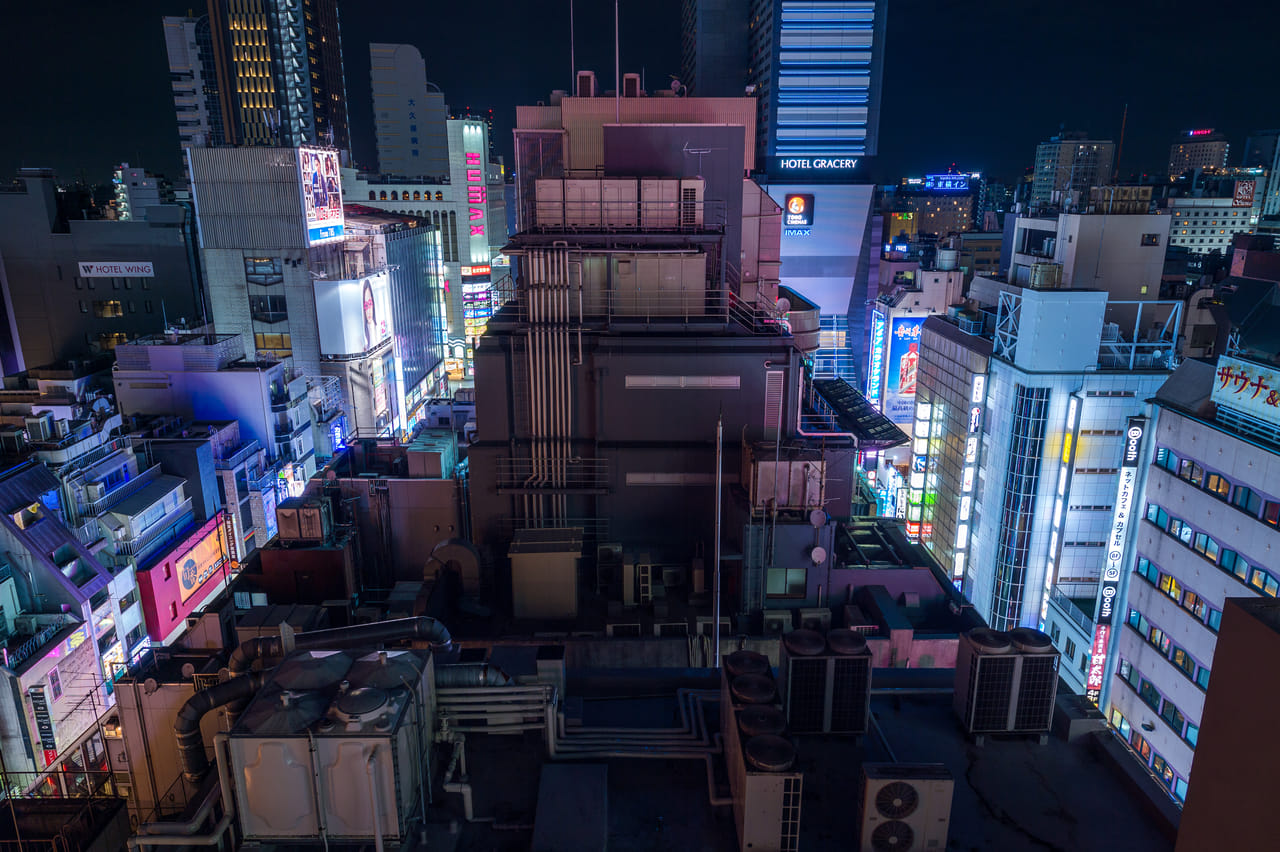
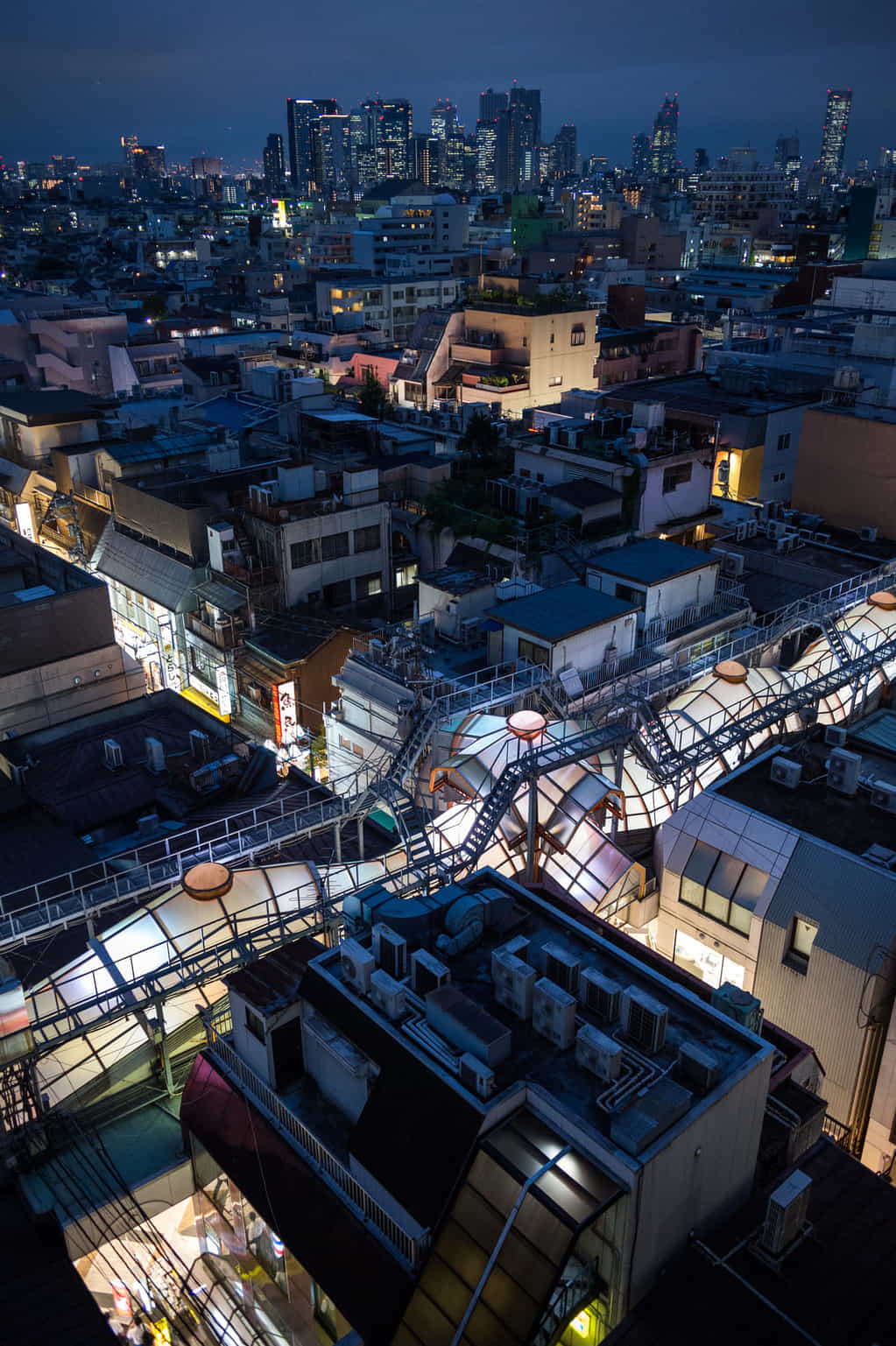
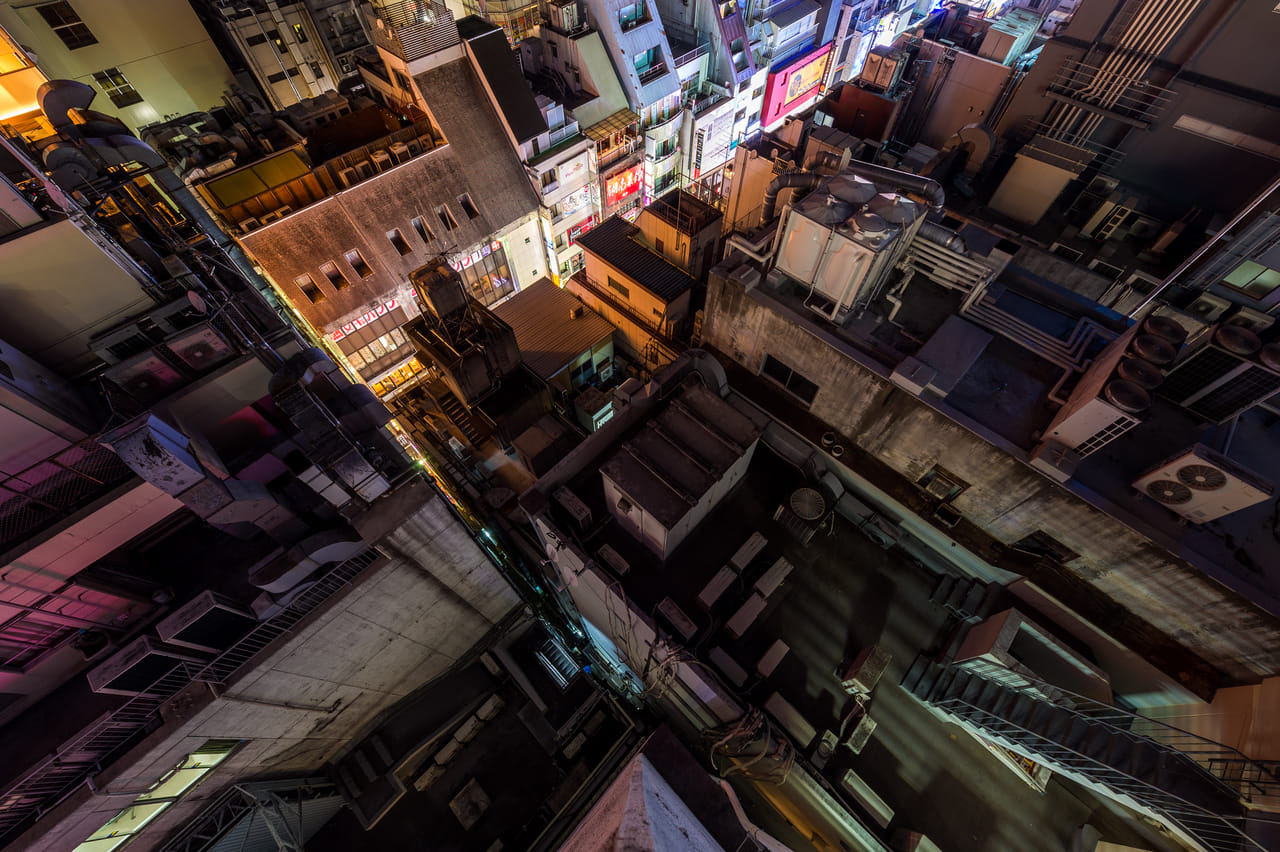
Other classic Tokyo-inspired flicks like Akira, Ghost in the Shell, and The 5th Element also inform his work. They give him a “feedback loop of inspiration.” To study how images communicate story, watching film helps him develop content and context. “In photos, because it’s a still, the emphasis is so much on composition. The really impressive photos have really wild composition. There are so many layers to [them]. In movies, that’s sometimes the case, but often it’s not. The composition needs to be there to convey the story … [allowing for] the feelings and the emotions to come through,” he said. His craft’s growth extends from asking himself, “How can I get a composition that works to tell a story, rather than it just being a great amazing impressive composition?”


Two years ago, at Gaba, one of Japan’s biggest language teaching companies, Lukasz was still an English instructor. For almost seven years, he had been working his way up to management. He had finally come full circle, acquiring that “real job” that he set out to avoid a decade earlier. He got health care, a pension, salary, and he was working full time as a manager. With job security he was safe. Then he quit.
Together with his friend Axel Deroubaix, who is based in Osaka, Lukasz co-founded Eyexplore. “Think of it as a personal trainer at a gym teaching you how to work out. We’re like personal trainers for photography,” he says. He takes his clients on what his company calls “photo adventures.” It’s a class combined with a tour. Out in the field, Lukasz critiques his students’ images and teaches them different photographic concepts. “It isn’t formal, but we do teach by going out and doing.” These days Lukasz actually works seven days a week, but “I love teaching,” he says. “I just don’t like teaching English.”
When asked about smartphones turning everyone into a photographer, he says, “I think that no matter how good you get at photography, if you go out with someone else who knows what they’re doing … who has a different perspective on things, you’re going to learn something.” For beginners, and even professional photographers, “when you’re in a foreign town … it is nice to have someone who knows the area extremely well and can take you to interesting spots and show you compositions that you might not have thought of if you were just passing through a place … The thing that I think Eyexplore brings to the table is that we know how to convey [photo] concepts cleanly and effectively so that people can learn. We’re trying to be like [former Chicago Bulls coach] Phil Jackson, not Michael Jordan.”
Photography pioneers Alex Webb, Saul Leiter, and William Eggelston were famous for communicating through images. Lukasz, like his idols, has something visually to say. Having photographed this city for almost 10 years, he’s gotten to know Tokyo in a way that few foreigners do.
With thousands of admirers following his Tumblr page, people often “heart” his images, but in a blog post entitled, “Becoming A Hermit In The Woods,” he writes about not wanting to fall victim to “the seduction of the ‘Like’.” “The path to creativity is fraught with fear, uncertainty, and self-doubt as it is,” he writes. “Why add to that by subjecting one’s work to the fickle attitudes of the social masses?”
Freelancing for various travel media platforms, he only takes gigs that challenge his craft. He hasn’t shown at a gallery. Although he’s never even printed out his pictures, he wants to publish a book – that is if he can get out of his own way. “I’ve never finished a project. It’s hard. That’s where I’m at. How do I actually finish a project … and say, ‘Ok, this is done.’”
For more of Lukasz’s work, visit www.lkazphoto.com/blog
For more information about Eyexplore, visit www.eyexplore.com



